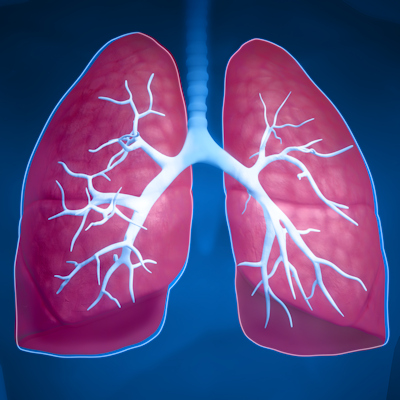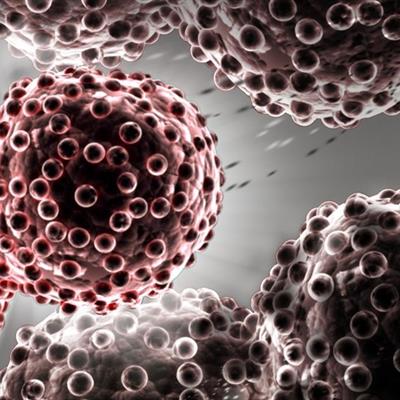January 25, 2023 -- Aston University's work on small molecule inhibitors of transglutaminase 2 (TG2) has spawned a biotech firm focused on treating the chronic lung disease idiopathic pulmonary fibrosis (IPF).
Martin Griffin, PhD, a professor at Aston in Birmingham, U.K., has published a series of papers on transglutaminase over the past 25 years. The studies have contributed to understanding the role the enzyme plays in cell death, matrix deposition, and cell adhesion, as well as how those biological processes affect wound healing, fibrosis, and tumors. In 2019, Cambrian BioPharma, a longevity biotech company, partnered with Aston to advance drugs based on the research.
Now, Cambrian has unveiled a new startup firm to take the program forward. The business, Isterian Biotech, is developing inhaled TG2 inhibitors for the treatment of IPF, a progressive respiratory disease characterized by fibrosis of the lungs. Estimates of median survival in IPF range from two to five years.
The therapeutic focus is underpinned by evidence that TG2 is involved in fibrosis. As humans age, levels of cross-linked proteins in the extracellular matrix increase. In IPF patients, the proliferation of fibroblasts and deposition of proteins exceeds the rate at which the body can degrade the materials. In other words, TG2 expression is elevated in IPF fibroblasts.
Griffin and his collaborators have shown that TG2 contributes to the myofibroblast phenotype in IPF cells and that inhibitors of the enzyme can reduce matrix deposition and reverse the IPF phenotype. Georg Terstappen, president and chairman of the board at Isterian, outlined how his company is building on the research done at Aston.
"Isterian's strategy of combining rational drug design with efficient multiparametric profiling of synthesized small molecules has been both impressive and highly productive. Notably, for one of our highly potent and selective TG2 inhibitors, we have recently demonstrated efficacy in a mouse model of lung fibrosis for the first time," Terstappen said in a statement.
TG2 inhibition represents a new way to try to treat IPF, a disease that many drug developers have tried to address without success. IPF patients currently have access to two treatments: Boehringer Ingelheim's Ofev and Roche's Esbriet, but they have limited impact on the progression of the disease and tolerability issues.
In an exploratory analysis of all-cause mortality in three phase III clinical trials, Esbriet had no statistically significant effect on survival over placebo across 120 weeks of follow-up. Survival was numerically better in the Esbriet arm, although the absolute difference over placebo fell from 3.2% after 52 weeks to 0.8% after 120 weeks. The limitations of Esbriet and Ofev mean there remains a need for new IPF therapies.
Copyright © 2023 scienceboard.net










